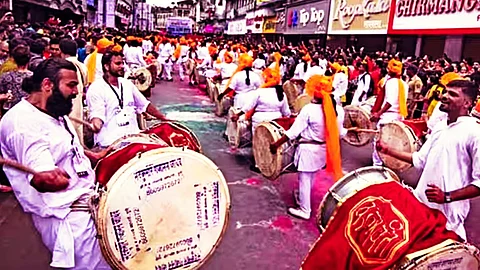

Pune: In a significant development for the ongoing Ganeshotsav celebrations, the Supreme Court of India has stayed an order by the National Green Tribunal (NGT) that sought to limit the number of performers in Dhol-Tasha groups to 30 during processions.
The NGT had issued the order on August 30, citing concerns related to noise pollution and environmental impact.
However, a bench led by Chief Justice Dhananjay Chandrachud intervened on Thursday (September 12), temporarily halting the enforcement of the NGT's directive.
The Supreme Court stated that imposing such restrictions on the number of performers in the drum troupes was not appropriate, providing much-needed relief to the Dhol-Tasha groups that form a critical part of Pune’s cultural identity during the Ganesh festival.
The NGT's earlier order had mandated that the number of members in Dhol-Tasha (Drum-Cymbal) groups participating in the immersion processions of Ganesh idols in Pune should not exceed 30.
This directive had prompted the court to issue notices to the Maharashtra state government, the Pune Municipal Corporation, and other concerned authorities.
Addressing the issue, the Supreme Court underscored the cultural significance of these drum troupes, stating, "Let them play their drums and cymbals because Dhol-Tasha is at the heart of Pune."
This ruling has been welcomed by many, as the traditional immersion processions, marked by the rhythmic beats of Dhol-Tasha, are a major highlight of the Ganesh festival in Pune.
With the Supreme Court's stay order, the local Dhol-Tasha groups can continue their performances without the constraints imposed by the NGT, ensuring that the vibrancy and cultural essence of the festival remain intact.
